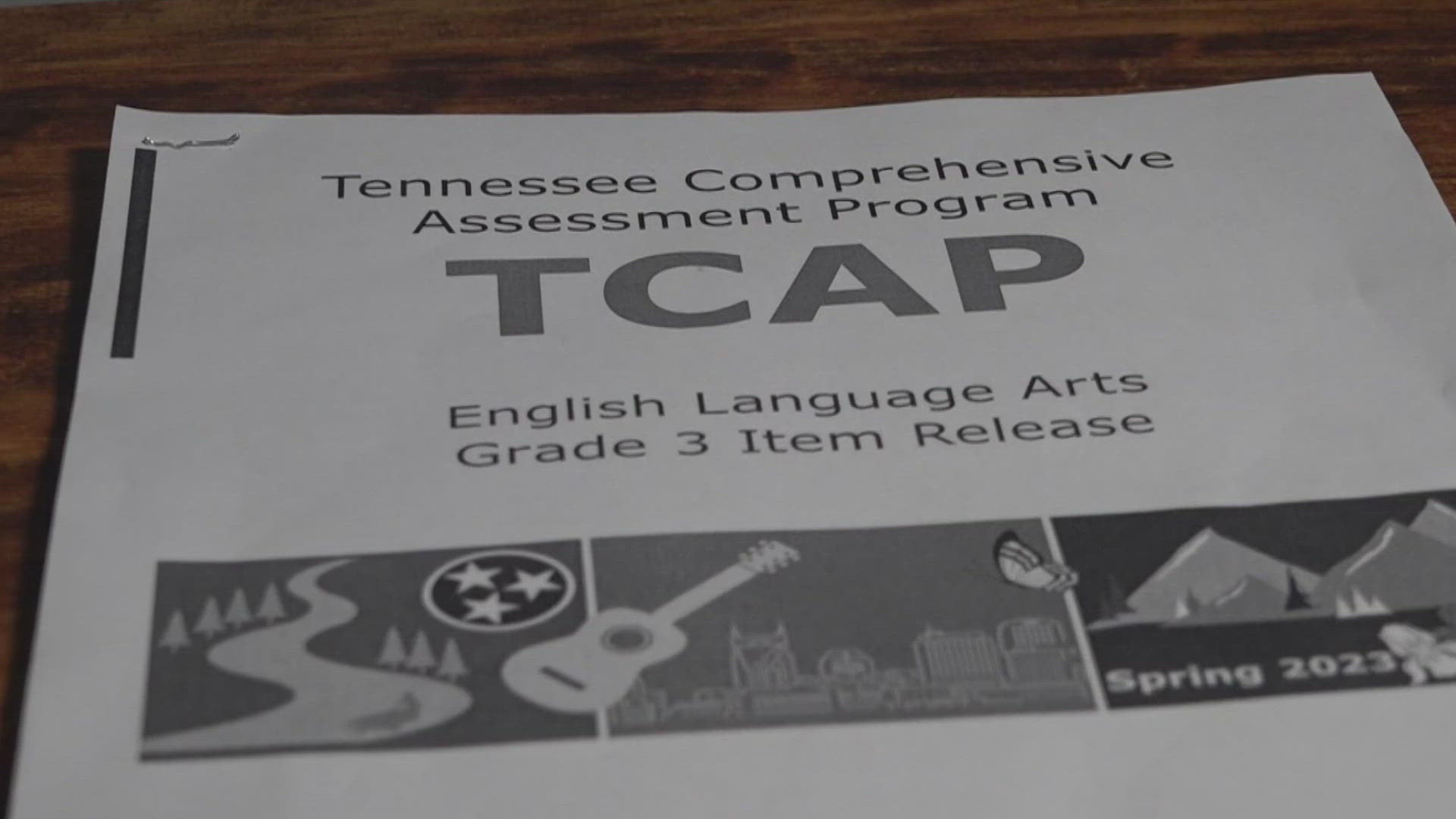KNOXVILLE, Tenn. — A group of Knox County fourth graders from Sterchi Elementary School described the Tennessee Comprehensive Assessment Program as "nerve-wracking" — especially after taking the standardized test the previous year. With these nerves, students have often lost a lot of sleep.
"Maybe three hours a night. And I was really tired when I had to answer those questions," said Layton Ray, a student at Sterchi.
A state law that went into effect in 2023 requires all third graders to score proficient on the English Language Arts portion of the TCAP or risk being retained. Looking back, the moms of the students say that pressure took its toll.
"He went from being excited about going to school, to not wanting to go, being sick every morning and saying his stomach was hurting just because of the test.," said Sally Green.
Sarah Ray is the mother of triplets in the fourth grade at Sterchi Elementary School. While two of her children scored proficient in third grade, one did not. That meant her daughter and the other students who scored below proficient had to choose between summer classes and tutoring to advance to the fourth grade.
"We are still trying to dig our way out and find the confidence. It's a constant struggle," said Ray.
Leaders at East Tennessee Children’s Hospital said a spike in the number of visits to the emergency room last year reflects that struggle. Dr. Suzanne Rybczynski, the hospital's Chief Medical Officer, points to an increase of almost 50% in the need for mental health support for students during standardized testing time, including the TCAP.
"I think this is one of the contributing factors," said Rybczynski. "I think there are a lot of things going on in kids' lives that will make them have increased anxiety. Another one of these things might be social media. It can cause a lot of stress too. Putting all of those things together, it’s just concerning, overall."
Deborah Reed is the director of the Tennessee Reading Research Center at the University of Tennessee. She realizes the stress attached to the TCAP but recognizes the need to assess students’ academic abilities.
"They are thoroughly vetted. They are considered to be the most appropriate way to determine whether or not students are meeting a given state’s expectations," Reed said.
Reed is researching how teachers’ expectations of students, students' test-taking effort and their anxiety might be related to their performance on the language arts portion of the TCAP. The study focuses on current Knox County fourth graders who were the first to fall under the new state TCAP requirements.
"Because kids are coming out of third grade, where it was high stakes for everybody, we have students for two years in a row who may be experiencing extra anxiety because they now know they are also at risk in fourth grade," Reed said.
The state law also required the at-risk students who advanced to fourth grade by way of tutoring or summer school to show adequate improvement on this year’s TCAP test. If they don’t, they face the possibility of having to repeat third grade. However, an amendment to the law added during this year's legislative session now allows a parent, teacher and principal to have a say in whether a student should be retained in fourth grade or promoted to fifth grade with a tutor.
Regardless, Ray said frustration and anxiety are setting in again.
"We are trying to build the plane while we are flying it and that does not work for anyone. My child is more than a test score," said Ray.

